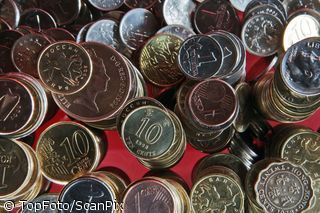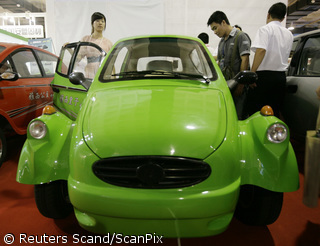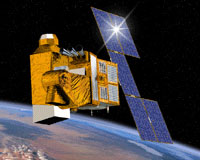Russia is not for the time being planning to raise the price at which it sells uranium to the United States under a 20-year contract.
Published:
6 April 2000 y., Thursday
Russia will continue to supply the uranium, which is derived from dismantled nuclear warheads, at the world price, Vladimir Vinogradov, a deputy minister of atomic energy, told Interfax. "Some people in our parliament think we are losing money by selling the uranium at a low price. But they are forgetting that Russia does not exercise a monopoly on this market and cannot therefore dictate its terms to others," Vinogradov said. At present, Russia is selling the uranium at $29 per kilogram, which is a little above the world price. It is against this background that leading western uranium companies like Cogema of France and Cameco of Canada are lowering their own prices for uranium. Russia will supply the United States with 30 tonnes of uranium this year, about as much as in 1999, and is likely to sustain that sort of amount in the years to come, Vinogradov said. Russia will earn something like $550 million from the uranium deal in 2000. The deal, signed in 1993, involves extracting 500 tonnes of high-enriched or weapons-grade uranium from dismantled warheads, and diluting it into low-enriched uranium suitable for nuclear fuel. The contract is worth $12 billion. The Russian atomic ministry has said the United States has received 45 tonnes of uranium in the last six years. This is a tenth of the planned total. Russia has received about $1 billion in return.
Šaltinis:
Interfax
Copying, publishing, announcing any information from the News.lt portal without written permission of News.lt editorial office is prohibited.
The most popular articles
 The European Commission today concluded on the existence of excessive deficits in Cyprus, Denmark and Finland and recommended deadlines for their correction to the Council.
more »
The European Commission today concluded on the existence of excessive deficits in Cyprus, Denmark and Finland and recommended deadlines for their correction to the Council.
more »
 Over 2000 former construction workers in Spain and nearly 600 ex-employees of Irish glass company Waterford Crystal and its suppliers will receive a total of €11 million in aid from the EU Globalisation Adjustment Fund to help with training, business start-ups and job guidance under plans agreed by MEPs and the Council of Ministers.
more »
Over 2000 former construction workers in Spain and nearly 600 ex-employees of Irish glass company Waterford Crystal and its suppliers will receive a total of €11 million in aid from the EU Globalisation Adjustment Fund to help with training, business start-ups and job guidance under plans agreed by MEPs and the Council of Ministers.
more »
 MEPs on Tuesday decided six top priorities and a number of additional key issues for the upcoming negotiations on the 2011 budget.
more »
MEPs on Tuesday decided six top priorities and a number of additional key issues for the upcoming negotiations on the 2011 budget.
more »
 The EU-China Science and Technology Week starts today at the heart of World Expo Shanghai.
more »
The EU-China Science and Technology Week starts today at the heart of World Expo Shanghai.
more »
 European Climate Action Commissioner Connie Hedegaard and European Investment Bank President Philippe Maystadt agreed on Monday to explore a joint climate finance initiative for developing countries as part of the European Union commitment made at the UN climate conference in Copenhagen last December.
more »
European Climate Action Commissioner Connie Hedegaard and European Investment Bank President Philippe Maystadt agreed on Monday to explore a joint climate finance initiative for developing countries as part of the European Union commitment made at the UN climate conference in Copenhagen last December.
more »
 Sustainability, competitiveness and security of energy supply: the three pillars to the foundation of a new EU energy community.
more »
Sustainability, competitiveness and security of energy supply: the three pillars to the foundation of a new EU energy community.
more »
 EU Trade Commissioner Karel De Gucht and Palestinian Minister of National Economy Hasan Abu-Libdeh today discussed measures to enhance EU-Palestinian bilateral trade relations and to facilitate trade of Palestinian products to EU markets.
more »
EU Trade Commissioner Karel De Gucht and Palestinian Minister of National Economy Hasan Abu-Libdeh today discussed measures to enhance EU-Palestinian bilateral trade relations and to facilitate trade of Palestinian products to EU markets.
more »
 Some of the most innovative and exciting transport research projects funded by the EU are being showcased at the Transport Research Arena (TRA) in Brussels this week.
more »
Some of the most innovative and exciting transport research projects funded by the EU are being showcased at the Transport Research Arena (TRA) in Brussels this week.
more »
 Nowadays we rely heavily on satellite positioning and navigation, but the only available technology is American.
more »
Nowadays we rely heavily on satellite positioning and navigation, but the only available technology is American.
more »
 The European Commission will reveal how it aims to revamp its transport networks policy in response to the challenges of the 21st century at a conference dedicated to the Trans-European Transport Network (TEN-T) in Zaragoza on 8 and 9 June.
more »
The European Commission will reveal how it aims to revamp its transport networks policy in response to the challenges of the 21st century at a conference dedicated to the Trans-European Transport Network (TEN-T) in Zaragoza on 8 and 9 June.
more »